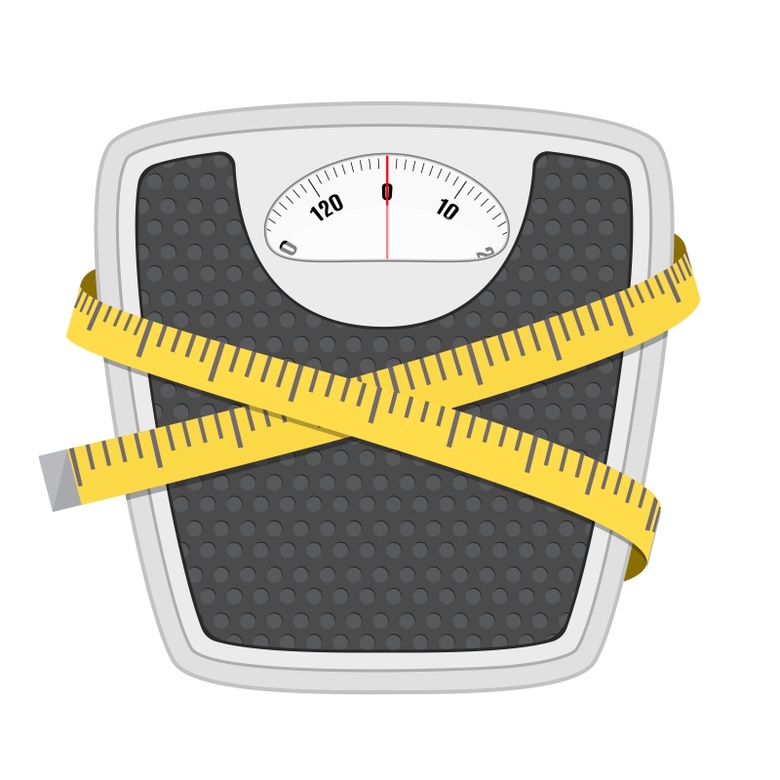Obesity in Scotland
Severe obesity is a growing public health concern. In 2018 in Scotland, 2% of men and 5% of women were classed as morbidly obese (no data exists for severe obesity). Severe obesity leads to more hospital admissions, earlier death, and poorer quality of life due to the higher risk of obesity-related diseases. Obesity-related diseases include type 2 diabetes, coronary heart disease and stroke. The cost to the health service in Scotland of people being overweight and obese is estimated to be between £363 and £600 million. The total economic costs to the country are estimated at as much as £4.6 billion per year in 2014. Our review looked at the effectiveness and cost-effectiveness of different ways to reduce severe obesity.

What is done right now?
Existing guidelines (SIGN and NICE) make recommendations about what treatments the NHS should pay for. They take into account things like whether the treatment works and if it offers good value for money. Treatment options are very specific to the condition of each person. We do not know the most cost-effective way to help people with severe obesity. Economic evaluations can help decide which treatments offer the best value for money to the NHS.
Economic evaluation – a useful tool for decision makers
An economic evaluation compares the costs and benefits of different healthcare services. The costs include the cost of obesity treatments, as well as the cost savings of obesity-related diseases avoided because of weight loss. For example, fewer heart attacks and less type 2 diabetes. The benefits include being able to live a better life for longer. To combine length and quality of life benefits in a single measure, we use the quality adjusted life year (QALY).
Our findings
We reviewed all existing economic evaluations of treatments for people with severe obesity. We found that, in the UK, interventions that provided value for money were a very low-calorie diet, a physical activity programme with dietary advice, lifestyle counselling and lifestyle weight management programmes. However, most studies were conducted over a short time period. They did not consider the longer-term cost savings from avoiding potential future obesity-related diseases. Furthermore, there is very limited long-term follow-up of weight change for people who went on a weight management programme. Therefore, we do not know whether a patient would regain the weight shortly after the treatment.
Our review found that bariatric surgery is the most cost-effective way to treat severe obesity. The surgery makes the stomach smaller and reduces appetite. In cases where a patient does not want bariatric surgery, options that are very effective are limited.
We also did our own economic evaluation to compare different options for severe obesity in the long term. We compared different weight management programmes, bariatric surgery or not helping. Like the review, we also found that bariatric surgery was the most cost-effective. However, if surgery is not an option, a weight management programme consisting of dietary advice and some support from health care professionals provides the best value for money. Future studies should evaluate the cost-effectiveness of weight management programmes (including those available on the NHS) in the long term to see if they provide value for money.
For more details see:
Avenell, A., Robertson, C., Skea, Z., Jacobsen, E., Boyers, D., Cooper, D., Aceves-Martins, M., Retat, L., Fraser, C., Aveyard, P., Stewart, F., MacLennan, G., Webber, L., Corbould, E., Xu, B., Jaccard, A., Boyle, B., Duncan, E., Shimonovich, M. and Bruin, M. (2018) 'Bariatric surgery, lifestyle interventions and orlistat for severe obesity: the REBALANCE mixed-methods systematic review and economic evaluation', Health Technology Assessment, 22(68).
Jacobsen, E., Boyers, D. and Avenell, A. (2020) 'Challenges of systematic reviews of economic evaluations: a review of recent reviews and an obesity case study', PharmacoEconomics, 38, 259-267.
The REBALANCE: REview of Behaviour And Lifestyle interventions for severe obesity: AN evidenCE synthesis study was funded by the National Institute for Health Research Health Technology Assessment Programme (Project Number Project number: 15/09/04). The views and opinions expressed herein are those of the authors and do not necessarily reflect those of the HTA programme, NIHR, NHS, or the Department of Health. The Health Services and Health Economics Research Units are funded by the Chief Scientist Office of the Scottish Government Health & Social Care Directorates.
Thanks to Elisabet Jacobsen of HERU for her work in developing this Blog post.

HERU is supported by the Chief Scientist Office (CSO) of the Scottish Government Health and Social Care Directorates (SGHSC). The views expressed here are those of the Unit and not necessarily those of the CSO.


